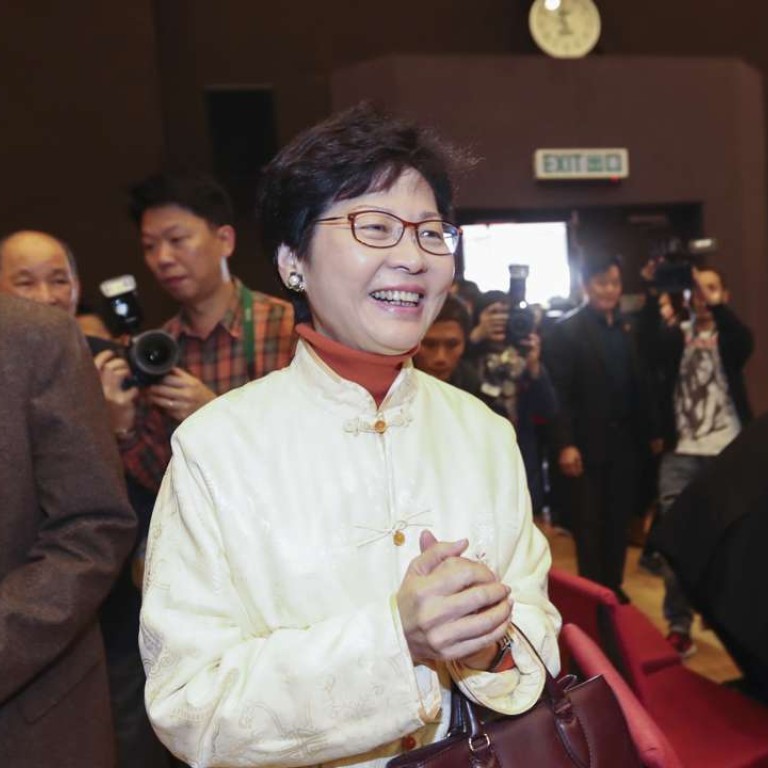
Heung Yee Kuk backs away from bloc vote for Carrie Lam in Hong Kong leadership race
Divisions within rural body emerge as kuk members meet chief executive aspirants Carrie Lam, John Tsang and Regina Ip
The head of the powerful rural affairs body, the Heung Yee Kuk, has backed away from earlier talk of making its members vote as a bloc for Carrie Lam Cheng Yuet-ngor, the candidate seen as Beijing’s preferred choice in Hong Kong’s leadership election.
That throws the race further open without a guarantee of bundled voting for a single candidate by the kuk, which holds 26 seats in the 1,194-member Election Committee that will choose the next chief executive on March 26,
After meeting separately with Lam and two other contenders on Wednesday, kuk head Kenneth Lau Ip-keung said: “As far as nominations are concerned, I won’t make a conclusion for the time being.”

Last week, the kuk chief said his group was leaning towards using all its 26 votes to nominate the former chief secretary. The change of tack comes against the backdrop of Lam’s history with the kuk when she was the minister in charge of development and knocked heads with villagers over ending their housing rights in the New Territories.
While Lau insisted the pro-establishment kuk would still bundle its votes after reaching a consensus, one committee member said that would be “quite hard to achieve” because some did not want to nominate Lam. “We feel she may not really be Beijing’s preferred choice. It seems like Beijing hasn’t made a decision,” the kuk member said.
Lau also met Regina Ip Lau Suk-yee to talk about her election plans and Lam’s arch-rival, John Tsang Chun-wah, whom he described as a “patriotic” person whose middle-of-the-road approach would be “suitable” for people across the political spectrum.
In the current four-horse race, an aspirant needs 150 nominations from the committee to qualify, and more than 600 votes to win.

Lau also on Wednesday described Tsang’s proposal for a “mixed development mode” of small-house construction with subsidised Home Ownership Scheme flats as “a novel idea”.
We feel [Carrie Lam] may not really be Beijing’s preferred choice. It seems like Beijing hasn’t made a decision
The small-house policy allows every male indigenous villager to build a three-storey house on private or government land. Critics see this as a privilege that should be rescinded to ease the land shortage, while the kuk argues that this is a traditional right protected by the Basic Law.
Tsang’s proposal, his campaign office said, was to make more efficient use of village land so that, for example, a plot of land could accommodate a six-storey block with three storeys used by a villager family and the other three to be sold to non-villagers as subsidised housing.
Tsang said he hoped to “secure some nominations from the kuk” after a “cordial and constructive” exchange with its leaders.
His election rival, Ip, urged the kuk to give up the idea of bundling its votes for any single candidate.

Lam said the small-house issue was “not easy to solve” and she should not comment when a relevant judicial review was under way.
A source present at the meeting told the Post that some rural leaders queried Lam’s close ties with second-generation property tycoons – especially with some of them joining her campaign team. They were also unhappy with her ambivalent stance on the small-house policy.
Bowie Hau Chi-keung, chairman of the Sheung Shui Rural Committee, said there were diverse views in the kuk as to whom to support and a consensus had yet to be reached.

